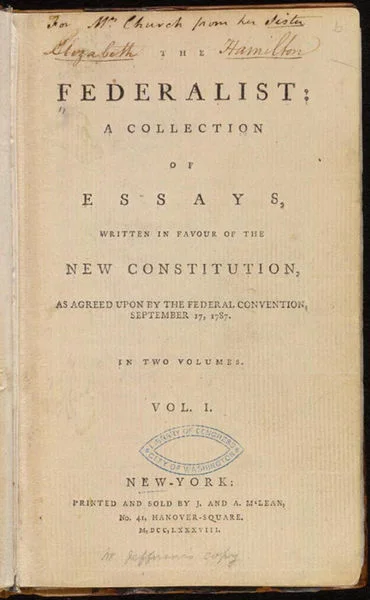George Walton's Signature Doesn't Get Him Hung
George Walton was a signer of the Declaration of Independence.
Walton focused mostly on politics in his home State of Georgia, becoming Chief Justice and serving as Governor.
George Walton
Although he was born in Virginia and trained as a carpenter, George Walton moved to Georgia as a young man and took up studying the law.
As Georgia had only been settled about forty years before his arrival, Walton quickly moved up the ranks and became one of the most respected attorneys in the colony. Eventually, he was chosen as Secretary to the Georgia Provincial Congress.
As tensions rose between the colonists and Great Britain, Walton was elected as President of Georgia’s Council of Safety. This stationed him as a leader in the colony’s Revolutionary Government.
Continental Congress
Georgia was one of the more Loyalist colonies in the early stages of the Revolutionary War. They did not send a Delegate to the First Continental Congress nor to the first session of the Second Continental Congress (though Lyman Hall was sent by his county and recognized by the other Representatives).
When Georgia finally decided to sent Delegates, George Walton was one of the original members.
Walton was still in Philadelphia when the vote to separate from Great Britain took place. He stayed and signed the Declaration of Independence the following August.
Capture
Walton left the Continental Congress to become a Colonel in the State Militia.
During the Battle of Savannah, George was shot in the leg and fell from his horse. He was taken captive and remained in captivity for the better part of a year.
Walton was eventually freed in a prisoner exchange. He is extremely lucky for this to have happened since he was a signer of the Declaration which meant he was supposed to have been hung for treason.
After his release, George was elected as Governor of Georgia.
Georgia
George Walton spent two years as Governor of Georgia before returning to the Continental Congress.
As the war drew to a close, Walton returned home to focus on State politics. He was elected Chief Justice of the Georgia Supreme Court and sat on that bench for six years.
Although George was elected to attend the Constitutional Convention, he decided not to attend as he considered his State to have more pressing issues. It is important to keep in mind that this Convention was only supposed to make changes to the Articles of Confederation and not create an entirely new Government. Had he known what was in store, Walton may have chosen to make the trip.
Walton would be elected Governor of Georgia for a second time just as George Washington was taking office as President of the United States. He would spend a year in this position before again serving as a Justice on the Georgia Supreme Court where he stayed until he passed away fifteen years later.
To read about other Founders from Georgia, I recommend checking out these articles on Joseph Wood and John Adam Treutlen.
If you are interested in reading more on George Walton, I recommend ‘Signing Their Lives Away’ which is a fun book with biographies on all the Declaration signers. The chapters are a bit longer than this site but the author has a great sense of humor. Pick up a copy through the affiliate link below to support Founder of the Day at no additional cost to you.
If you are new here, consider subscribing to the email list for a new Founder every day.






